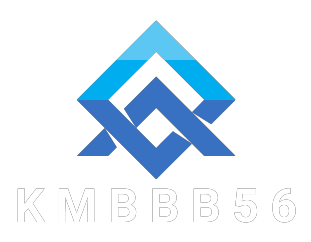When businesses expand their operations internationally, the risk of unpaid invoices grows Inkasso Polen. In Poland, just as in other countries, debt collection is a crucial process to maintain financial stability and ensure the smooth running of operations. This guide delves into the concept of Inkasso Polen (debt collection in Poland) and explores how businesses can effectively navigate this system.
What Is Inkasso Polen?
Inkasso Polen refers to debt collection services in Poland. These services are designed to assist businesses in recovering unpaid debts from clients, partners, or customers. Debt collection agencies in Poland operate within a well-defined legal framework, ensuring fair practices for both creditors and debtors.
Why Are Debt Collection Services Important?
Debt collection services provide a lifeline for businesses facing non-payment issues. Here are some of the key benefits:
- Professional Mediation: Debt collection agencies act as mediators, reducing the risk of damaging business relationships.
- Legal Compliance: Agencies are well-versed in Polish laws, ensuring that debt recovery is conducted legally.
- Efficiency: Experienced professionals handle the process, saving businesses time and resources.
- Financial Stability: Recovering unpaid debts helps businesses maintain cash flow and avoid financial strain.
How Does Debt Collection Work in Poland?
The debt collection process in Poland generally involves the following steps:
1. Amicable Phase
In this initial phase, the debt collection agency attempts to recover the debt through negotiation. This includes sending reminders, making phone calls, and drafting payment agreements. The goal is to resolve the matter without resorting to legal action.
2. Judicial Phase
If the amicable phase fails, the matter is escalated to court. The agency may assist the creditor in filing a lawsuit. The Polish legal system ensures a fair hearing for both parties, and the court may issue a payment order if the claim is valid.
3. Enforcement Phase
Once a court order is obtained, enforcement proceedings begin. The debt can be recovered through various means, such as wage garnishment, bank account seizures, or property liens. Polish bailiffs (komornik) handle this phase.
Choosing the Right Debt Collection Agency in Poland
Selecting the right agency is crucial for a successful debt recovery process. Here are some factors to consider:
- Experience: Look for agencies with a proven track record in handling international and domestic cases.
- Legal Knowledge: Ensure the agency has expertise in Polish debt collection laws.
- Transparency: Choose an agency that provides clear terms and regular updates on the progress of your case.
- Reputation: Check reviews and references to assess the agency’s credibility.
Legal Framework for Debt Collection in Poland
Debt collection in Poland is governed by the Polish Civil Code and other related laws. Key aspects include:
- Statute of Limitations: Typically, the statute of limitations for debts in Poland is three years, but this can vary depending on the nature of the debt.
- Fair Practices: Agencies must adhere to ethical standards and avoid harassment or undue pressure.
- Court Procedures: Creditors must provide sufficient documentation to support their claims during legal proceedings.
Tips for Preventing Debt Issues in Poland
While debt collection services are invaluable, prevention is always better than cure. Here are some tips to minimize the risk of unpaid debts:
- Perform Due Diligence: Research potential clients’ financial stability before entering agreements.
- Clear Contracts: Ensure all terms, including payment deadlines and penalties for late payments, are explicitly stated in contracts.
- Regular Follow-Ups: Send reminders before payment deadlines to avoid delays.
- Maintain Communication: Keep open lines of communication with clients to address potential payment issues early.
Final Thoughts
Inkasso Polen plays a vital role in safeguarding businesses from financial losses due to unpaid debts. By understanding the debt collection process and working with professional agencies, businesses can navigate these challenges effectively. Whether through amicable negotiations or legal proceedings, the right approach ensures a higher likelihood of recovering owed amounts and maintaining healthy business relationships.
